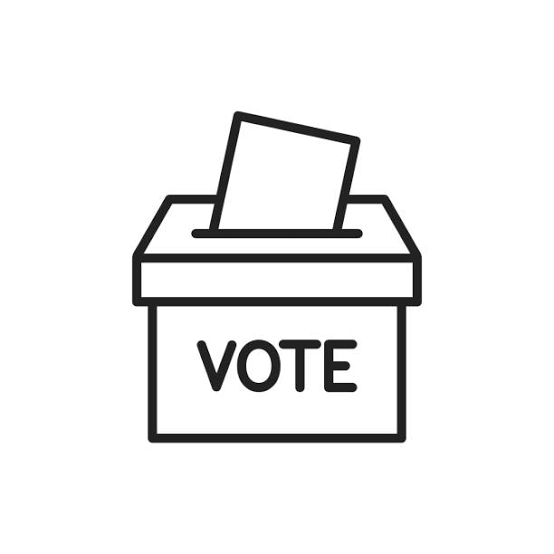By Dorcas Katembo Kayombo and Deborah Nkhoma
Elections in the African region are a cornerstone of democracy, under which citizens can express their opinions and contribute to shaping the future of their states.
However, an increasingly alarming trend that is threatening to erode people’s faith in this important democratic mechanism is voter suppression.
In an age when free and fair elections mark the bedrock of political stability, as well as societal progress, nations across Africa are struggling with an issue that negatively affects the legitimacy of the electoral systems.
Voter suppression is the intentional attempt to prevent or discourage specific groups from voting. Techniques may be different types of intimidation at polling sites, malpractices in the voting rolls, restricted access to voter registration, and logistical measures that make it impossible for eligible citizens to cast their ballots.
Most of the time, political violence is the order of the day, and there have already been instances of the use of force to keep a certain population from voting, particularly those who form opposing groups or those who are usually marginalized.
These things go on in most African countries as a typical feature of political life.
It is especially sad seeing that this part of the world is already very precarious in its trust in the electoral processes and still struggling in the course of democracy.
Over a series of recent elections, the continent has shown just how wide-reaching voter suppression is and how much it undermines the credibility of democratic processes.
Uganda’s 2021 General Elections
Uganda’s 2021 general elections best illustrate this.
The country was already jittery from the memories that followed violent attacks after the 2007 elections, and in 2017, that was worsened by intense allegations of both electoral fraud and intimidation at polling stations.
Political parties clashed with each other, and as a result, they made things worse by adding violence to the discouragement that citizens felt regarding their participation in voting.
It further exposes the Kenyan example that exposes the level of division in society, which voter suppression, besides creating very high levels of distrust in the electoral system in Kenya, can grow even further.
Nigeria’s 2019 General Elections
In addition, the 2019 general election in Nigeria also provided evidence as to the forms voter suppression can take.
As mentioned earlier, the queuing systems, malfunctioning voter machines, and logistical inadequacies regarding access to polling stations greatly disenfranchised voters, particularly in the rural areas.
Poor infrastructure locked many out, while some had their names wrongly removed from the voter rolls.
The problems mentioned affect a country with over 200 million citizens. Unfortunately, they reveal how easy it is to manipulate.
Sadly, cries of a million voices can thus be made unheard.
Kenya’s 2007 General Elections
While, the 2017 election in Kenya is yet another painful example.
The country was already jittery from the memories that followed violent attacks after the 2007 elections, and in 2017, that was worsened by intense allegations of both electoral fraud and intimidation at polling stations.
Political parties clashed with each other, and as a result, they made things worse by adding violence to the discouragement that citizens felt regarding their participation in voting.
It further exposes the Kenyan example that exposes the level of division in society, which voter suppression, besides creating very high levels of distrust in the electoral system in Kenya, can grow even further.
Zimbabwe’s 2018 Elections
Zimbabwe’s elections in 2018 were much like a replay of the ugly castings of voter intimidation and political violence. For a long time, the opposition had been vocal in accusing the ruling Zimbabwe African National Union Patriotic Front (ZANU-PF) party of malpractices.
Nevertheless, it must face adversity in mobilizing supporters for the elections.
Usually, people living in opposition strongholds were subjected to intimidation, while some of the polling stations had rampant bloodshed and made it hard for citizens to cast their votes without any form of force.
Effects of Voter Suppression in Africa
These instances note a rather worrisome development in African elections: suppression of voter turnout is not an exception but rather has been proved a common issue often in need of addressing head-on.
Moreover, there is a huge impact of voter suppression. The damage caused by it in society could only be found in dwindling public trust in the very process of elections. Deny citizens the chance to vote freely and fairly, and they lose trust in the outcome’s legitimacy.
The erosion of trust leads to a cycle of disillusionment in which citizens come to believe that their votes do not count, which undermines the very foundation of democracy.
Also, voter suppression generally results in a low level of turnout for elections. It tends not to see a great deal of incentive to vote.
The repercussions of this apathy are obvious: an election becomes less and less representative, so one group is increasingly excluded from making decisions about it.
Consequently, policies can unmanage citizen needs, causing widening gaps in their social well-being and increased disruption to the political future.
Voter suppression does not affect the particular individual thing and, therefore, undermines all credibility for electoral systems in general. An election becomes unfair, and, no matter how much the vote sinks into casting, results are suspect.
Ultimately, people’s frustration grows as they are prevented from participating in that democracy through their own works.
Further, this undermines the legitimacy of governments and fuels political frustration.
The long-term effects of voter suppression are grave enough for any democracy. In countries where the electoral process is routinely fixed, political fragmentation is inevitable.
In many African countries, diverse as well as politically pluralistic, voter suppression further widens the already existing social and ethnic cleavages.
Political parties are then incentivized to look only to their own supporters, which further deepens tribal divides and creates a condition under which cooperation and unity are increasingly harder to achieve. It adds to the likelihood of political instability when elections are not free or fair.
Such governments, relying on false elections, are weaker and more conflict-prone. Where the people as fraudulent, the chances of violence increase, and power struggles view political processes could easily escalate into coups or civil wars.
The Role of African Electoral Commissions
The electoral commissions thus create the possibility for an election to be held fairly and are effective in the management of the election. They are the ones that take charge of migrant registration oversees the transparency of polling stations, and votes count.
In many African countries, however, such commissions are often marred by allegations of partiality and having ploys from political elites, and due to that reason, there is great doubt in such cases on whether the election process can be credible, making it almost impossible for many citizens to trust whether their votes have actually counted.
Thus, independent observation of elections is very important in ensuring that these elections are free, fair, and transparent.
In a country where the electoral body is weak, civil society organizations and international observers will help unearth
and then publicly denounce the malpractices.
Voter suppression can thrive without these, and much more public trust in the system may be eroded.
Solutions to combat voter-suppression in Africa
Combating voter suppression in Africa would require a very comprehensive, multifaceted approach in the sense that it would have to ensure that individuals should be provided access to vote.
Access means that registration processes must be made easily available to citizens, especially in and around rural or remote areas. They also need to train election officials in the management of voter lists and have polling places equipped to handle a great many voters at a time.
Independent Monitoring of Elections
Independent monitoring of elections is another critical tool against voter suppression. Empower civil society organizations, international observers, and media to report any irregularities in the
process.
Transparency is key; thus, governments must commit to providing public scrutiny of their election results. Election-related violence, however, should be addressed too.
Governments should implement strict measures in order to restrain intimidation and violence at polling stations.
Those who commit these cruel acts must be brought to justice. The sudden legal consequences of the use of violence suppressing the ballot will be a deterrent to political actors from promoting such behavior.
Furthermore, the solution is the simple process of registration and effective availability of polling places, especially in rural areas, in order to strengthen energy in access to the vote.
Independent election monitoring would thus reveal irregularities in voting processes while imposing strict sanctions on violence during the election and strategies of voter suppression to ensure real fairness.
Public awareness campaigns are also essential for educating citizens on the value of voting and combating suppression.
In the end, suppressing voters is a major problem in Africa in terms of the input point to touch free and fair elections. If citizens lose their trust in the election process, it can be dire—not only for democracy but also for political stability.
The African governments should take concrete measures to ensure that elections are accessible and free from intimidation, a step that would go a long way in ensuring that people muster confidence in the process: Africa is now more than prepared to make truly inclusive and trustworthy electoral processes for citizens.
The authors are students at Africa University pursuing a Bachelor’s of Science (Honors) in International Relations.
This post was created with our nice and easy submission form. Create your post!




